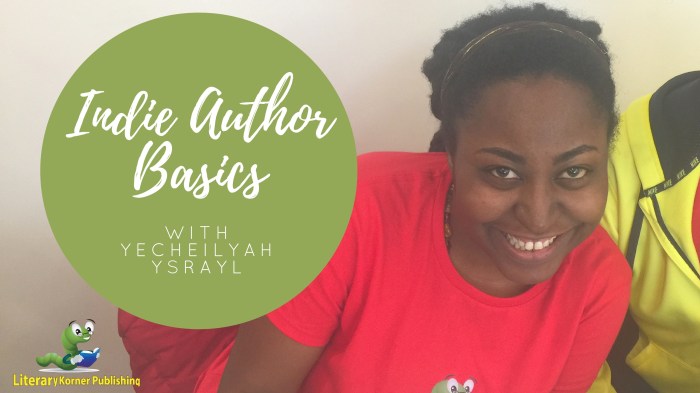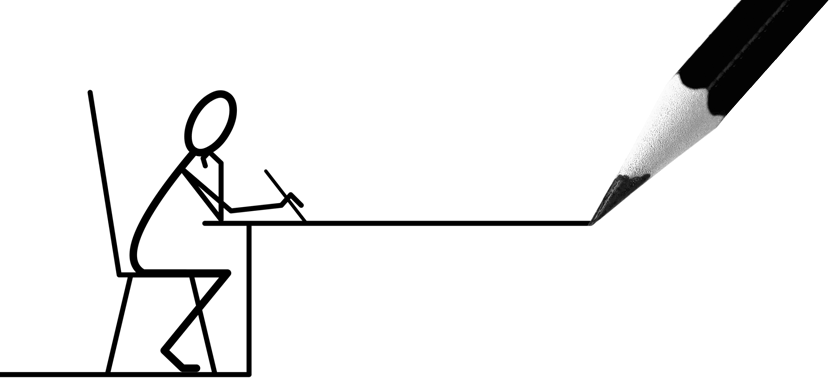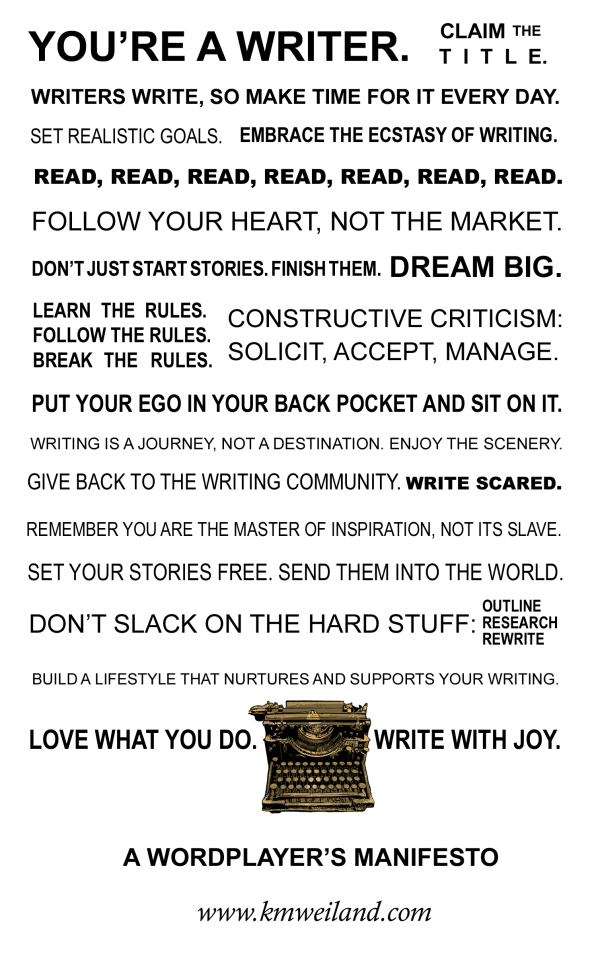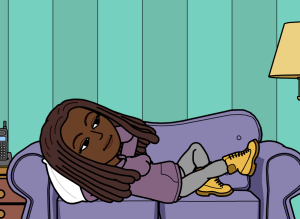
A wise man once asked a simple question: “What is water?”
A few people gave their answers. Some said “H2O”. Some said, “a transparent liquid found in lakes, oceans, and seas.” Other’s said, “a chemical substance.”
The man smiled. “None of the above.”
The people’s brow buried deeper into their foreheads and their mouths twitched, “what?”
“Don’t give me the name or what you’ve been told it is made of,” said the man.
“Tell me what it is.”

****
Self-Publishing is a lot like life, there is a question behind everything we think we know. There’s a lot of advice in the Indie Author community. What if I told you that not all of it was good advice? Or shall I say, not all of it is wise advice? It may be useful advice, but is it wisdom? Do we actually know what water is? We do not.
What is the most talked about thing in this community? What is that thing that people just can’t stop talking about? Yes, the Author Platform is one, but what’s another? That’s right, “Show, Don’t Tell.”
Hold on to your seats. A lot of you are not going to like this:
What if I told you this was not very good advice?
I didn’t say it wasn’t useful advice. Advice is subjective like that.
Let’s establish the facts. New authors indeed tend to lean more toward telling than showing and this is a problem for readers because it makes the story difficult to get into. The author’s purpose is to make the reading as easy and as effortless as possible.
Please, for the love of all that is set-apart, make sure your script does not read:
“I walked up to the coffee machine. I grabbed the pot. I walked over to the sink. I filled the pot with water. I put the pot back and turned on the machine. Brandon calls me from the other room. What does Brandon want?”
Everyone say it with me:
“Don’t tell me the moon is shining; show me the glint of light on broken glass.”
― Anton Chekhov
Great advice.
I sympathize with staunch “Show, Don’t Tell-ers” because I’ve come into contact with many books that sound just like that example. All the author did was told me what was happening (like one big summary) and bored me to death. My brains shifted in my skull, turned into liquid and oozed from my temples. Gross, right? You don’t want to gross your reader’s people.
Here is wisdom: Show AND Tell.
- Showing – Writing vividly with detailed images, sensory information, and/or dramatized action
- Telling – Writing in abstract summaries or simple statements
It is the secret no one is talking about.
Or, almost nobody.
Kristen Kieffer wrote a most excellent post on balancing show and tell and I will quote her in this post because ya know, no need to reinvent the wheel. Though I’d already written this article as a newsletter for my email list long before I read Kristen’s article, I am glad I eventually came across it as it further solidifies my point and now I can use some of her examples as a reference. Kristen Lamb says:
“As writers we are often guilty of too much brain-holding, of coaching the reader. We want to control every emotion, perception and description yet often less is more. When we leave blank space for the reader to fill in, the fiction can have room to blossom into something unplanned for. The story becomes richer and the experience more visceral because it transforms into an echo of the audience’s self-projection. Thus instead of one fixed interpretation, we get countless.” – Kristen Lamb
Aside from both Kristen’s and a few others, few people are talking about this aspect of balancing show and tell. Because of the show vs. tell debate authors are now showing us everything but their booty cheeks. That’s not what show means and makes the story sound just as boring as too much telling. It’s called Storytelling for a reason. You are supposed to tell a story.
The difference is not eliminating telling. You don’t want to show and not tell. You want to balance the amount of telling and showing. The straight action works no more than no action. Your characters just can’t be running all over the place, they need quiet, emotional times too. Balance is key.
Storytelling came from the oral traditions of passing along information by word of mouth. It is the days where your grandmothers and great-grandmothers told the stories of their childhoods. It’s when you sat at their knees to learn of the world that existed before you.
The easiest way to understand this is remembering that Telling gives us the statement, in other words, tells us something is done. Whereas showing is the demonstration of how something is done. That said, why is Anton’s example so popular?
“Don’t tell me the moon is shining; show me the glint of light on broken glass”.
–Anton Chekhov
When I first read this quote, I pictured a triangular piece of glass that fell from a window and is now sitting on a street corner under the moon. It rained earlier, so it sprinkles the glass with droplets of water. I can tell by the position of the glass and the tiny pieces of gravel because something bad happened. This caused the glass to shatter and yet, there is the light shining through all the brokenness. The story is not over because there is hope.
The moon is shining, tells me what is happening, but the glint of light on broken glass shows me how it happened. (Or at least how I imagine it happened.) It is a demonstration versus information. Don’t tell me they shot the woman in a restaurant. Show me the sweat on the palms of her hands and underneath her armpits, the perspiration sliding down her temples; the tears rolling down her cheeks, and the shakiness of her hands as the pistol is pointed at her head.
Telling is Just as Important
In the words of Steven Moore, who left a comment on the article 5 Examples of Bad Writing Advice from Great Authors:
“You should only provide enough detail so the reader can participate in the creative process by forming their own ideas about characters.”
Telling is just as important as showing and it is because of this being left out that makes “Show, don’t tell”, strange advice. It just doesn’t explain the entire matter. I need not know every single thing that is happening in the restaurant. You don’t have to show me the fly on the windowsill if it’s not relevant to the story.
A general rule of thumb is to show only when it has something to do with the story. Bernice McFadden does a most excellent job at this in This Bitter Earth. Everything mentioned in this book connected somehow. There is nothing mentioned that is insignificant to the story and no question that is not answered by the end of the novel.
Telling is making a statement without the drama. “She touched the pillow.” That’s telling. We don’t learn how she touched the pillow or what she thought when she touched the pillow, we are just told she did and it’s enough. We need not overdramatize her touching of the pillow.
It’s a matter of knowing when to show and when to tell.
Let’s refer to an example in Kristen Kieffer’s article:
Too much showing:
“His eyes were like the sea during a storm, dark blue and tumultuous. His jaw was chiseled like marble, his nose sharp and strong. His golden locks glimmered in the sunlight as he carried the boxes, ropy arm muscles rippling beneath the crimson fabric of his t-shirt.”
I enjoyed reading that actually, but, I am learning something as well. Because I love poetry, I can sometimes show too much! Good thing we have beta readers and editors. Moving on…
Too much telling:
“His eyes were dark blue. His shirt was crimson red. He had a prominent jaw and big muscles. I watched him as he walked into the office, holding a box with his name on it.”
As you can see, too much telling is BORING. My brain is shifting…
Showing and Telling:
“His eyes were dark blue, as tumultuous as a storm at sea, a stark contrast to his cheery crimson shirt. He had that classic Adonis look so many girls admired. Chiseled jaw, strong nose, ropy muscles, I admired them all as he carried his box of belongings into the office.”
“His eyes were dark blue (statement), as tumultuous as a storm at sea (description), a stark contrast to his cheery crimson shirt (description). He had that classic Adonis look so many girls admired (statement). Chiseled jaw (description), strong nose (description), ropy muscles (description), I admired them all as he carried his box of belongings into the office (statement).”
Now that’s a tasty description. Want to create the same in your writing? Kristen advises we use the following formula:
1 Statement + 2-3 descriptions = Balanced writing
I love this advice and will be incorporating this nugget of wisdom in my own writing.














